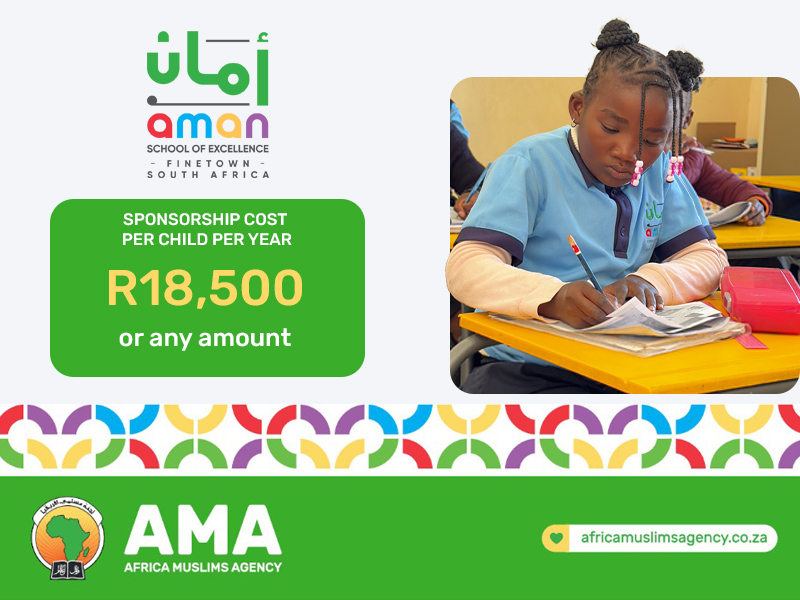
By Imam Dr. A. Rashied Omar
On Friday, 10 October 2025, the world observed World Mental Health Day. This global occasion offers a timely reminder that mental health is one of the most pressing health challenges of our time. It is also an issue that our community must face with honesty, compassion, and courage. Far too often, conversations about mental health in Muslim circles are silenced by denial and or stigma. Yet the reality is undeniable: depression, anxiety, and other forms of psychological distress touch the lives of many within our families and communities. To acknowledge mental illness is not to admit weakness of faith (iman). It is to embrace the truth of our human condition, and to open ourselves to the healing tools that both Islam and modern science place at our disposal.
Mental Health: A Widespread Challenge
Globally, depression is projected to rank among the leading causes of lost productivity, spiraling health costs, and diminished quality of life. South Africa has not been spared. The tragic and still-unfolding death of former Minister and Ambassador to France, Nathi Mthethwa, casts a piercing spotlight on just how insidious mental suffering can be. According to statements from his wife, Phelisiwe Buthelezi-Mthethwa, she received messages from him apologizing and indicating an intention to end his life. Whether or not every detail is confirmed, her brave disclosure forces us to face this painful reality: mental illness spares no one, not leaders, not public figures, not the faithful. To acknowledge this is not to tarnish his memory, but to elevate a more compassionate truth: suffering in silence must no longer be the default. Recognizing that even someone of his stature might be overwhelmed by internal pain helps break the silence, challenge the stigma, and open the door to healing.
It is important to understand that mental distress is not a sign of weak faith (iman). Even the prophets of God endured profound sorrow. The Qur’an tells us of Prophet Yaʿqub (Peace be upon him), whose grief over the loss of his son Yusuf caused his eyesight to fade (Q. 12:84). Likewise, our Beloved Prophet Muḥammad (may Allah’s everlasting peace and blessings be upon him) endured immense sadness and distress during the ʿAm al-Huzn (Year of Sadness), when he lost two of his greatest pillars of support: his noble uncle Abu Talib and his beloved wife Khadija. The Sirah relates that after Khadija’s passing, the Prophet (pbuh) would frequently remember her with tears in his eyes, and he continued to honour her memory for the rest of his life. He is reported to have said: “She believed in me when no one else did; she accepted Islam when people rejected me; she supported me with her wealth when others deprived me.” (Musnad of Imam Ahmad).
This powerful testimony shows us that grief and sorrow, even for Allah’s most beloved Messenger, are natural responses to loss. Sadness, grief, and emotional pain are thus part of the human condition, even for the most righteous and steadfast of believers.
An Islamic Lens on Mental Health
Islam teaches us that life is a test, filled with both joy and hardship. Allah reminds us in Surah al-Mulk, chapter 67 verse 1-2, Allah, the Lord of Guidance proclaims: “Blessed is Allah in whose hand is the dominion, and Allah has power over all things, the One who created death and life to test you as to which of you is best in conduct.” (Q. 67:1–2) And in Surah al-Balad, chapter 90 verse 4“Truly, We have created humankind in hardship.” (Q. 90:4)
Health challenges, including struggles with mental well-being, are therefore not marks of personal failure. They are an inescapable feature of earthly life, part of the divine test, and an opportunity for growth in patience, faith, and resilience. At the same time, our tradition emphasizes that every illness has a remedy. The Prophet Muhammad (PBUH) is reported in Sahih al-Bukhari to have said: “There is no disease that Allah has created except that Allah has also created its cure.” This hadith places a moral obligation on us to seek treatment when we suffer, whether through medical care or psychological and spiritual support.
Moving Beyond Stigma
Sadly, within our community, mental illness is too often misunderstood. Some argue that people suffer because their faith is deficient. Others discourage seeking help from psychologists or psychiatrists. This thinking not only deepens people’s suffering, it drives them into silence and isolation. We must remind ourselves that to seek help is not a failure of faith; it is an act of responsibility and trust in Allah. Just as we consult doctors for diabetes or heart disease, we should consult mental health professionals for depression or anxiety. Islam does not demand that we endure in silence; it calls us to act to preserve the gift of life and dignity that Allah has entrusted to us.
Islamic Tools for Healing
Alongside professional medical care, Islam offers us powerful, holistic spiritual resources to safeguard mental wellbeing:
- Salah (Ritual Prayer): The daily rhythm of prayer grounds us, reconnects us to Allah, and creates inner calm.
- Dhikr (Remembrance): Repeating the Names of Allah softens the heart, eases worry, and instills tranquility.
- Sabr (Patience) and Shukr (Gratitude): Cultivating patience in hardship and gratitude in ease provides emotional balance.
- ʿAsabiyyah (Family Support and Social Solidarity): As the great North African Muslim scholar Ibn Khaldun (d. 1406 CE) taught, strong bonds of family and community protect us from isolation. Congregational Salah, Zakah, Ramadann, and Hajj all reinforce this ethic of togetherness and shared responsibility.
At the same time, we must be realistic: religious observances alone do not immunize us against psychological suffering. Even the most devout may struggle with despair or anxiety. What our tradition calls us to is not denial, but compassion, for ourselves and for others.
Recognizing the Signs
It is part of our communal duty to recognize when we or our loved ones may be struggling, and to reach out for help when needed. In South Africa, several lifelines are available: the SADAG Suicide Crisis Line (0800 567 567), the Substance Abuse Helpline (0800 12 13 14), and Lifeline South Africa (0861 322 322), which offers 24-hour counseling and crisis support. These resources remind us that no one should suffer alone, and that compassionate help is always within reach.
Encouragingly, Muslim communities themselves are beginning to develop institutional responses to the challenge of mental health. In the United States, the Khalil Center (khalilcenter.com) has pioneered a faith-based model that integrates Islamic spirituality with professional psychological care. Similarly, in South Africa, the Islamic Careline (Tel: 011 373 8080 / 078 727 1334; icareline.org.za) provides culturally sensitive counseling and support to families and individuals. These initiatives signal that our ummah is awakening to the urgent need for holistic support systems that weave together the healing power of faith with the best tools of modern psychology.
A Call to Compassion Care
Mental illness is not a moral failing. It is part of being human. Our duty as Muslims is to respond not with judgment, but with mercy and compassion. Let us break the silence. Let us replace stigma with compassion, ignorance with understanding, and despair with hope. By integrating the healing tools of Islam with the best of contemporary mental health care, we can nurture a community where no one suffers alone, and where the mercy of Allah, the Most Compassionate, is made manifest in how we care for one another.
May Allah, the Most Compassionate, grant relief and strength to all who face struggles of the heart and mind, replacing their sorrow (huzn) with tranquility (sakinah), their anxiety (qalq) with peace of mind (ṭumaʾninah), and their loneliness (wahshah) with the warmth of Allah’s Divine Presence; and may their trials be a purification of sins and a means of raising their ranks by Allah’s grace.











